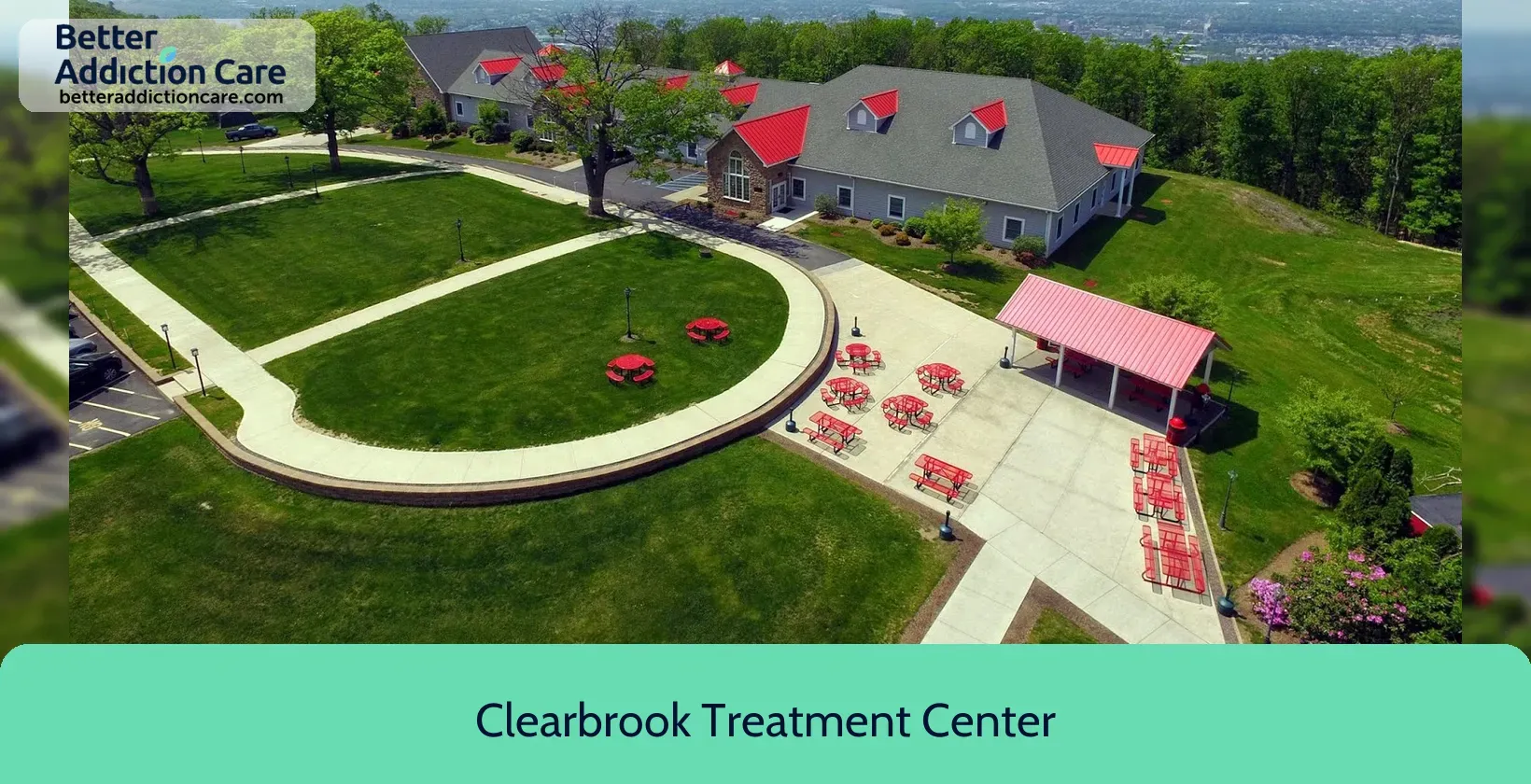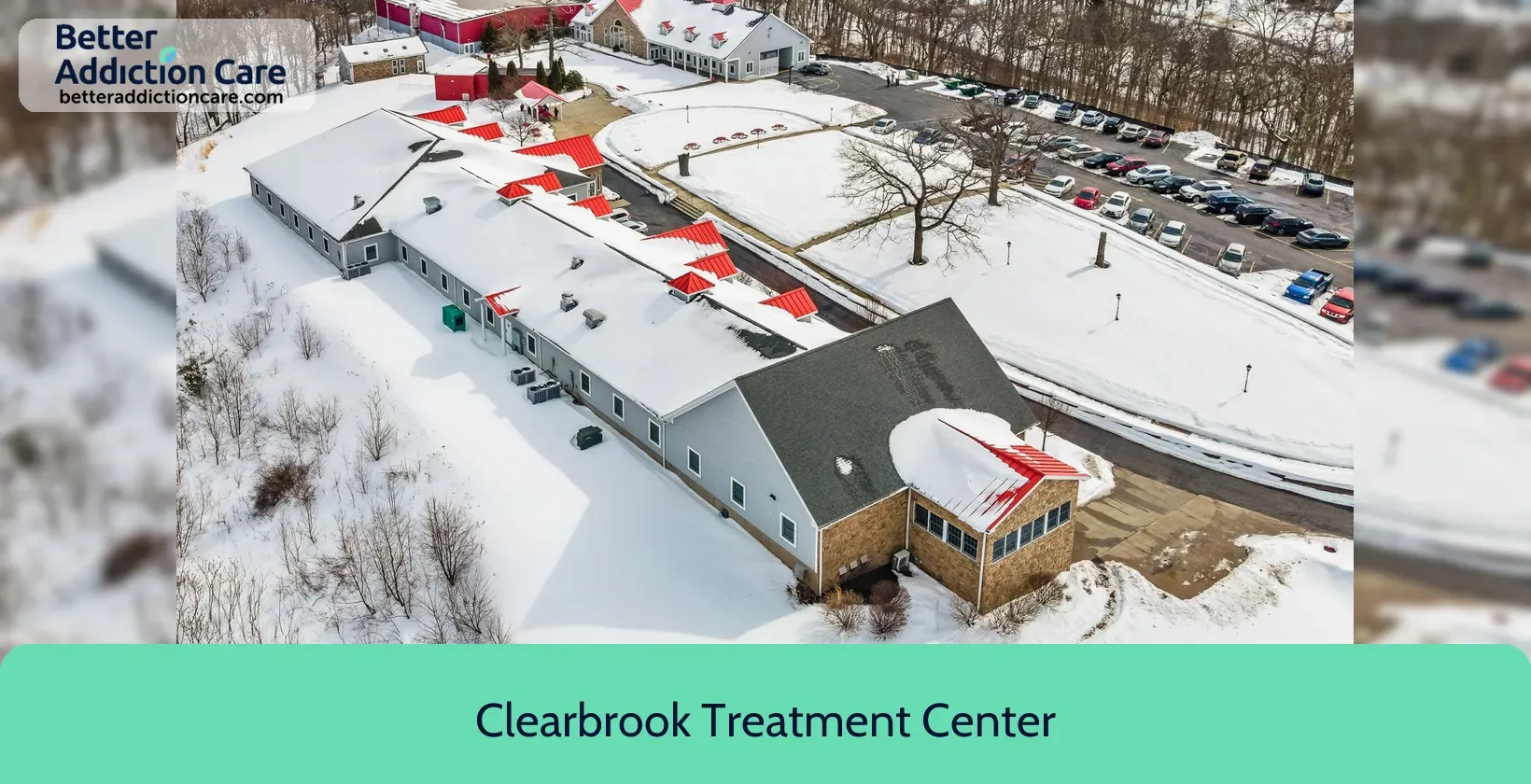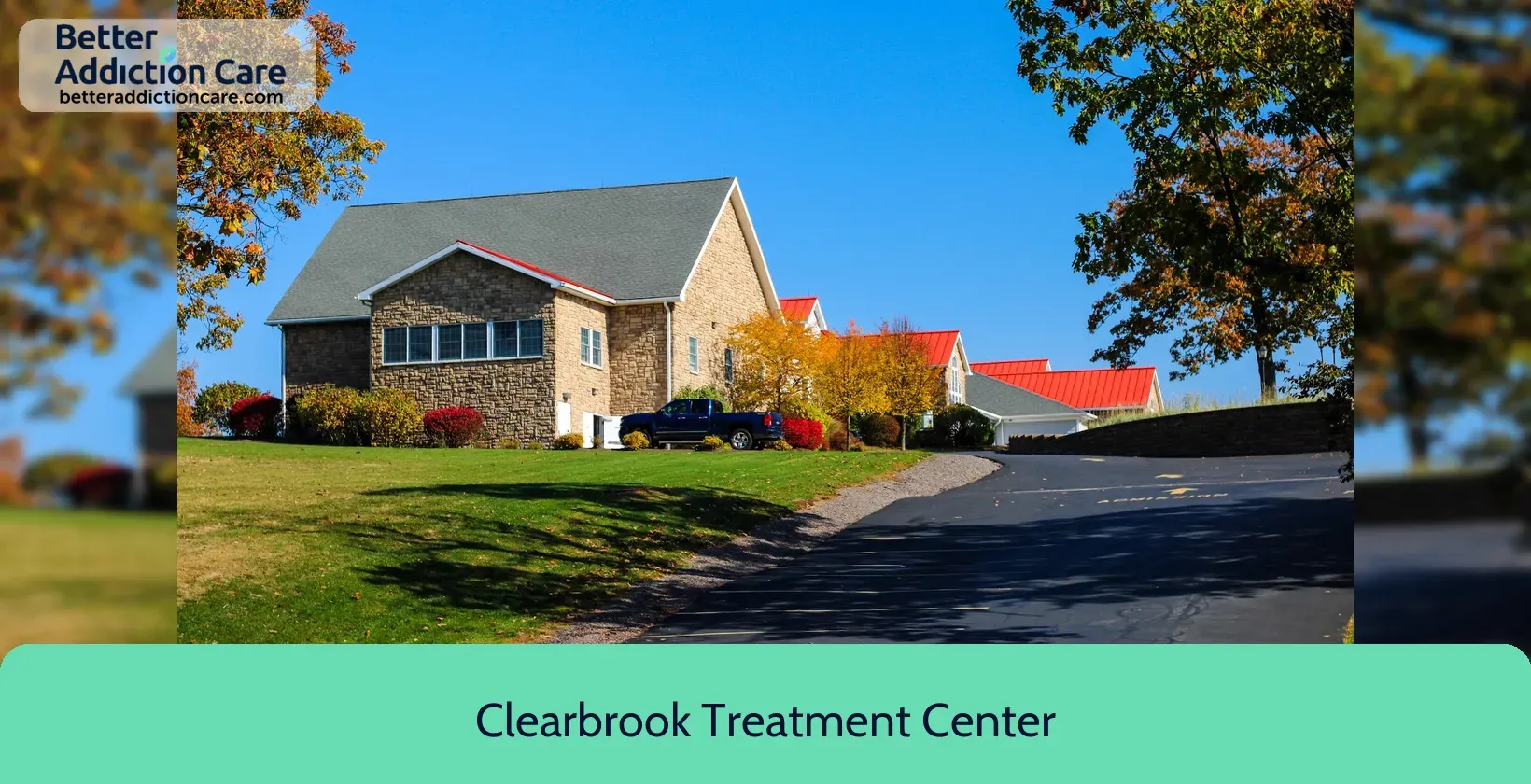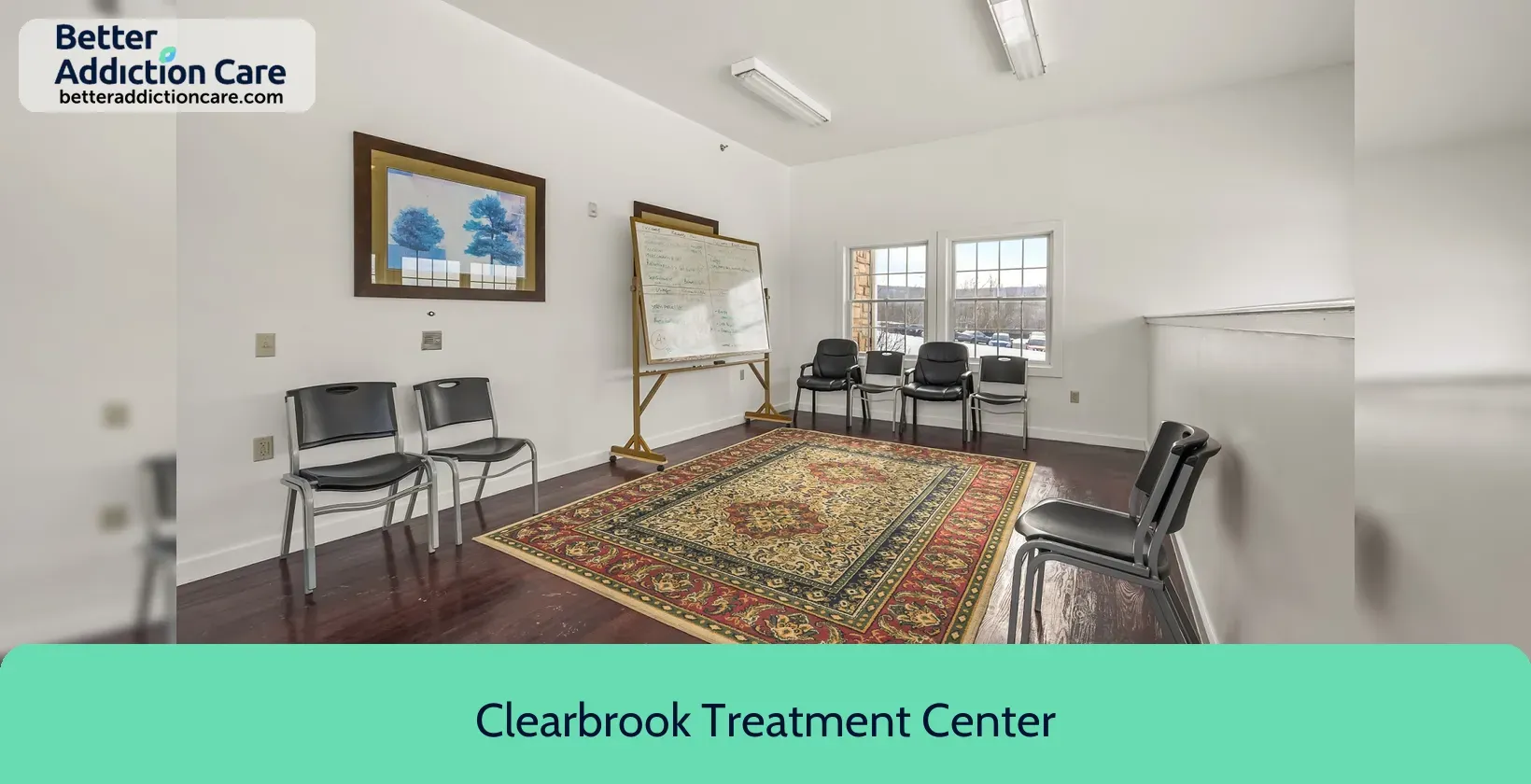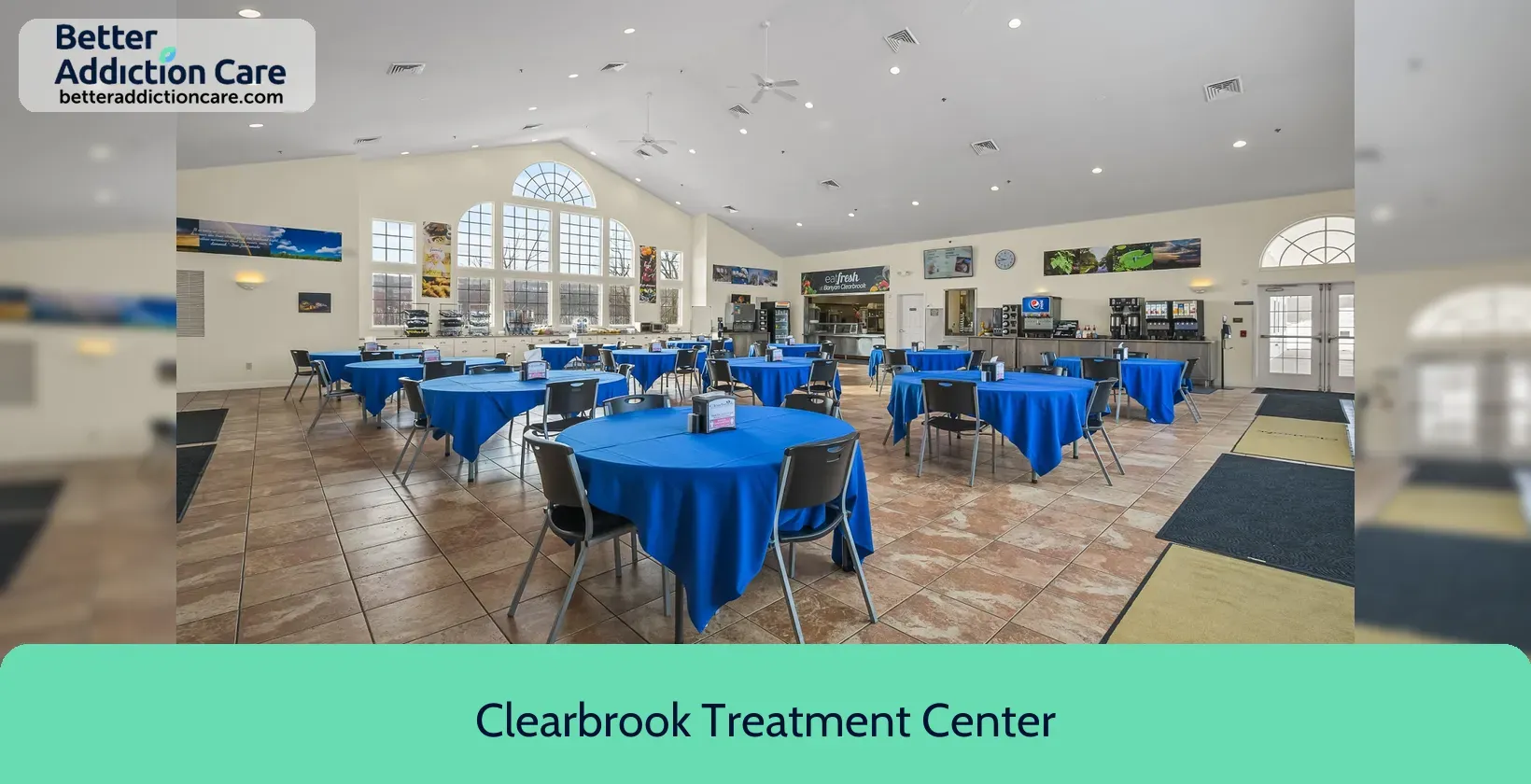Clearbrook Treatment Center
Overview
Clearbrook Treatment Center is an accredited substance abuse treatment center that provides inpatient detoxification, for men and women between 18 and 65+ years of age. As part of their special programs, Clearbrook Treatment Center treats veterans and clients who have experienced trauma. To help patients achieve sobriety, Clearbrook Treatment Center provides treats alcohol detoxification, benzodiazepines detoxification, and cocaine detoxification.. Afterward, patients receive cognitive behavioral therapy, telemedicine/telehealth therapy, and substance use disorder counseling during treatment. Clearbrook Treatment Center is located in Wilkes-Barre, Pennsylvania, providing treatment for people in Luzerne County, accepting cash or self-payment, private health insurance, and federal military insurance (e.g., tricare).
Clearbrook Treatment Center at a Glance
Payment Options
- Cash or self-payment
- Private health insurance
- Federal military insurance (e.g., TRICARE)
Assessments
- Screening for tobacco use
- Comprehensive mental health assessment
- Comprehensive substance use assessment
- Outreach to persons in the community
- Screening for mental disorders
Age Groups
- Young adults
- Adults
- Seniors
Ancillary Services
- Case management service
- Integrated primary care services
- Suicide prevention services
- Domestic violence services, including family or partner
- Mental health services
Highlights About Clearbrook Treatment Center
7.43/10
With an overall rating of 7.43/10, this facility has following balanced range of services. Alcohol Rehabilitation: 8.00/10, Drug Rehab and Detox: 8.15/10, Insurance and Payments: 6.00/10, Treatment Options: 7.58/10.-
Drug Rehab and Detox 8.15
-
Alcohol Rehabilitation 8.00
-
Treatment Options 7.58
-
Insurance and Payments 6.00
Accreditations
State department of health:

Government agencies issue State Licenses, which grant rehabilitation organizations permission to conduct their operations lawfully within specific geographic regions. Licenses needed to operate are typically determined by the type of rehabilitation program offered by the facility and its physical location.
The Joint Commission:

The Joint Commission accreditation signifies that a facility has met rigorous standards of excellence in patient care, treatment, and safety. It assures individuals and healthcare professionals that the accredited facility provides high-quality, evidence-based care for addiction and mental health issues, fostering trust and confidence in their services.
Treatment At Clearbrook Treatment Center
Treatment Conditions
- Alcoholism
- Substance use treatment
Care Levels
- Hospital inpatient treatment
- Short-term residential
- Residential detoxification
- Aftercare
Treatment Modalities
- Cognitive behavioral therapy
- Telemedicine/telehealth therapy
- Substance use disorder counseling
- Trauma-related counseling
- Smoking/vaping/tobacco cessation counseling
Ancillary Services
Additional Services
- Pharmacotherapies administered during treatment
- Mentoring/peer support
- Breathalyzer or blood alcohol testing
Special Programs
- Veterans
- Clients who have experienced trauma
Get Help Now
Common Questions About Clearbrook Treatment Center
Contact Information
Other Facilities in Wilkes-Barre

7.20

6.92

6.90
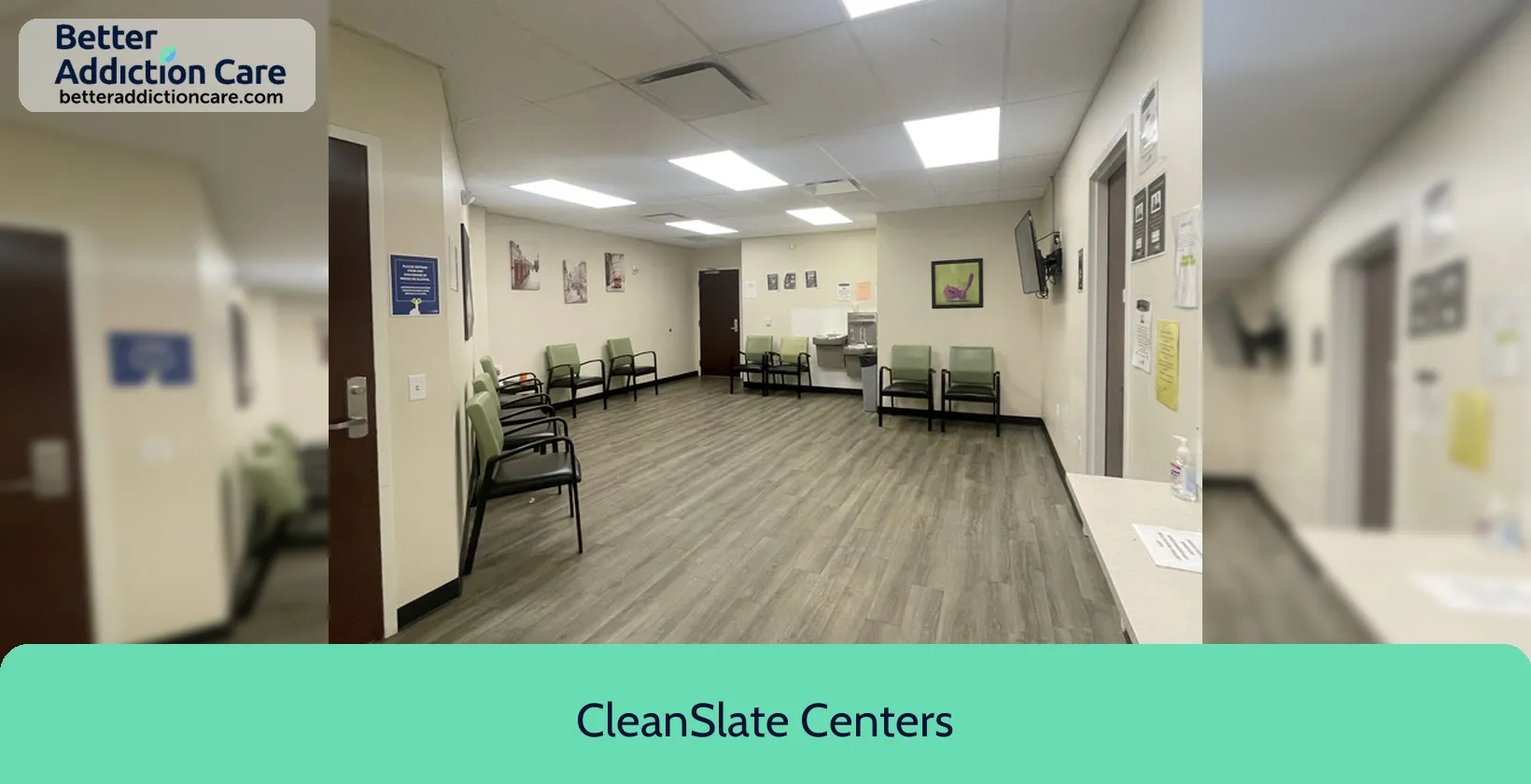
7.04
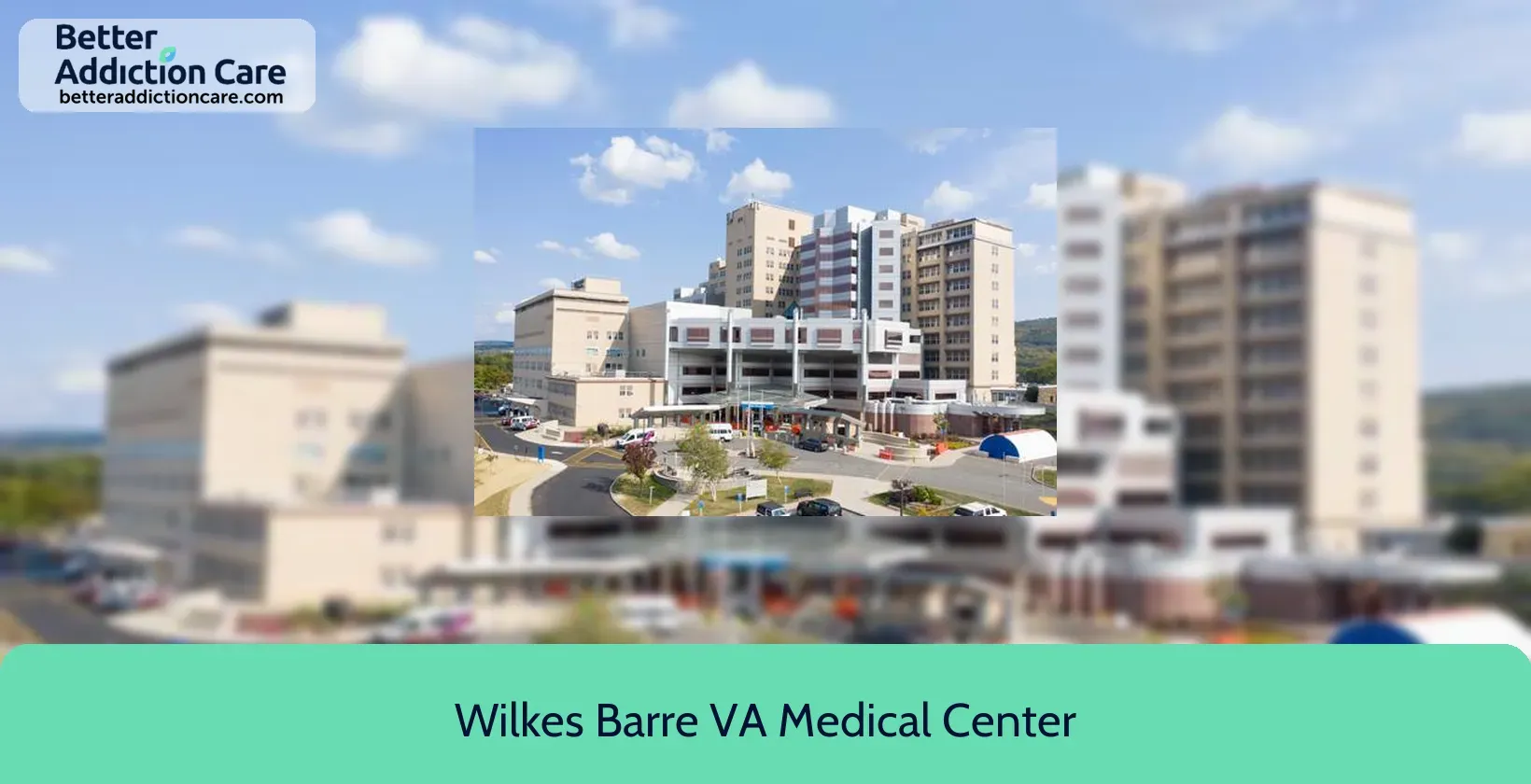
7.93
DISCLAIMER: The facility name, logo and brand are the property and registered trademarks of Wilkes-Barre VA Medical Center, and are being used for identification and informational purposes only. Use of these names, logos and brands shall not imply endorsement. BetterAddictionCare.com is not affiliated with or sponsored by Wilkes-Barre VA Medical Center.
